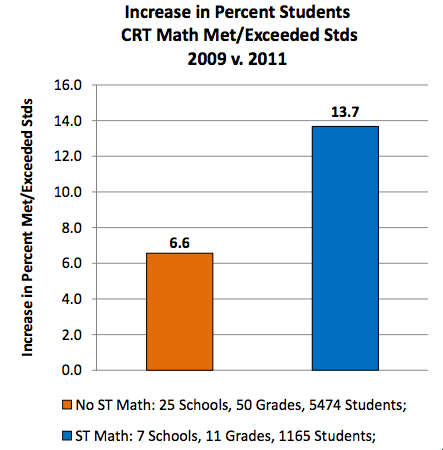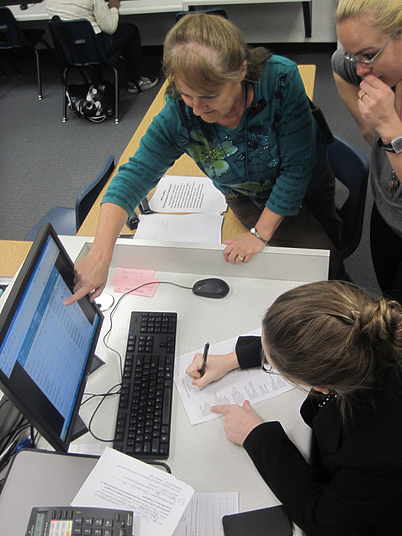
After three years of implementation, Deborah Julsen knew ST Math was working. As the data coordinator at Bailey Middle School in Las Vegas, Deborah had the evidence to back it up; comprehensive testing showed that students who used ST Math the most also saw the greatest growth.
But the veteran educator was not satisfied. She knew there were missed opportunities and the growth could be even more dramatic.

So Deborah created an ST Math Educators Cohort. As a condition for using ST Math, teachers have to participate in the cohort’s monthly meetings, which have only one requirement: at each meeting, teachers come prepared to share with the group a classroom lesson built around an ST Math game.
The cohort discusses the proposed lesson, asks questions and offers suggestions for changes. Teachers work together to perfect a lesson, explore additional games that support the targeted concept and offer textbook pages that facilitate the desired connections.

Teachers are invited to observe the lessons in action, and resources are shared so that others in the cohort can teach the lesson. Each time it is taught, the lesson becomes more refined and more robust as each teacher adds his or her own expertise and creativity.
The intention is that over time, the lessons are collected, so that future ST Math teachers have a dynamic and comprehensive library customized to the student population and resources of the school.
Deborah’s cohort is just starting out, but already the participants are seeing results. Bringing JiJi, the animated penguin in the ST Math games, into the classroom has energized students, and ST Math curricula are no longer taught in isolation from classroom lessons.
In the lab, students see the value of ST Math more clearly and are more engaged from day one. And teachers are benefiting too; analyzing the games to use in the classroom has brought more depth to their understanding of mathematical concepts and inspired new ways to reach the most difficult to teach students.
By encouraging teacher collaboration and providing the forum for collaboration to happen, Bailey Middle School is finding new ways to build on the success they’ve already seen.
Tim Woodward, MFA, is an education success manager for MIND Research Institute.

MIND Research Institute welcomes guest blogs that highlight best practices in math education, blended learning and innovative learning strategies that inspire students at all ages.
Comment